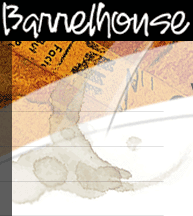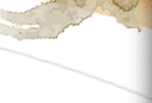|
|
 |
 |

by Don Ball, Jr.
The Don's verse was sublime, and he enjoyed reciting a few lines from "Ode to a Blown Job" as he strangled one of his former bodyguards to death. He thought it apropos, as the bodyguard had been contracted to kill the Don, but had been found out instead. A blown job indeed.
The Don was published in American Poetry, The Poet, Mississippi Review, Quarterly West, and Granta among others. All in all, he had 29 poems published in 15 different literary journals. Still, he knew there was no money in it, so he kept his day job.
 The Don tried to fit his writing in between business. Meetings with politicians, meetings with the police, meetings with other Dons, it was all very complicated. An occasional prostitute to relieve the tension, a couple-three bourbons, and everything was better. After sex, instead of a cigarette he would write tankas, finding haikus too limiting. When he had the time, he used a larger canvas: odes, sonnets, prose poems. His dream was to one day write an epic. It would be about himself, but obliquely.
The Don tried to fit his writing in between business. Meetings with politicians, meetings with the police, meetings with other Dons, it was all very complicated. An occasional prostitute to relieve the tension, a couple-three bourbons, and everything was better. After sex, instead of a cigarette he would write tankas, finding haikus too limiting. When he had the time, he used a larger canvas: odes, sonnets, prose poems. His dream was to one day write an epic. It would be about himself, but obliquely.
His wife, Maria, shared his enthusiasm for poetry, and sometimes they would hold readings at the club the Don owned. Occasionally, the Don himself would read in his deep baritone voice. He hated the artifice of stopping at the end of each line and found poets that read that way distasteful.
The Don used to hold open-mike readings every Friday, until one poet was so bad it enraged the Don to the point where he followed the man out of the club, pulled him into the alleyway, and beat him senseless with a lead pipe, screaming, "How dare you rhyme 'moon' and 'spoon' in my club!" After that, he thought it best to keep a low profile, closed the club for a week and took Maria to the Bahamas, ending the open-mike readings upon his return.
A professor of literature at a nearby university called him at the club, complimenting him on a recent poem in the New Yorker. He asked the Don about teaching a seminar on writing poetry for a semester. Honored, the Don accepted. The first class, the Don discussed some of the rudimentary aspects of poetry. One student, a male with long, dirty hair and a dull silver earring in his right ear, yawned. The Don stopped talking, his jaw clenching for a moment as he glared at the oblivious offender, then continued. After class, the Don asked the student to his office. The Don asked him politely to please pay attention in class and get enough rest so he wasn't yawning during discussion. The student nodded and rolled his eyes. The Don followed him out of the building and shot him with a silencer in the parking lot, put the body in the trunk of his Caddy, and drove him to Cheney Lake where he tied the body down with rocks and pushed it gently into the water, prodding it with a long stick until it went under. The rest of the semester went on without incident, and the Don was sure a couple of the students would end up published poets someday. He was very proud.
Since the Don never had to worry about money, he never worried about publishing volumes of his poems either. However, as he got older, he thought that he would like to have a legacy other than running the South Side and half of the East End of the City. He put all the poems that were published in literary journals over the years together with some new poems he had recently written, and shopped the manuscript around. He was surprised by the lack of interest. One publisher told him that he really needed to have an agent because publishers didn't like to work with the writers. Another told him that poetry didn't sell. A third said he wasn't a big enough name to warrant a book and that he should check the university presses or a vanity press. That publisher, a few days later, found the brakes in his car didn't work and was killed running a red light.
Finally, one of the publishers recognized his New Yorker poem and offered to publish the book, but unfortunately couldn't offer the Don an advance. The Don didn't care about the money and accepted. It received a solid review in the "Books in Brief" section of the New York Times Book Review, sold a respectable amount for a poetry book, and both the Don and the publisher were happy.
When the Don was arrested for arranging the murder of Big Louie Carducci, Iron John Calhoun, and a former mayor of the City, his lawyers used the book "Made Man Poems" to show that the Don was a respectable member of the community. The Don read a couple of poems from the witness stand in his deep, rich voice. Two women on the jury were weeping by the end. He was acquitted.
The Don died several years later from prostate cancer, and although his obituaries mentioned his murder trial and alleged connections to organized crime, they also featured prominently his poetry and his stature in the local arts community. His book remains in print and is taught at the local university.
Don Ball has an MFA from the University of Alaska in Anchorage and has had a story published previously in Verve and a story forthcoming in
the Saranac Review.

|
|
|




